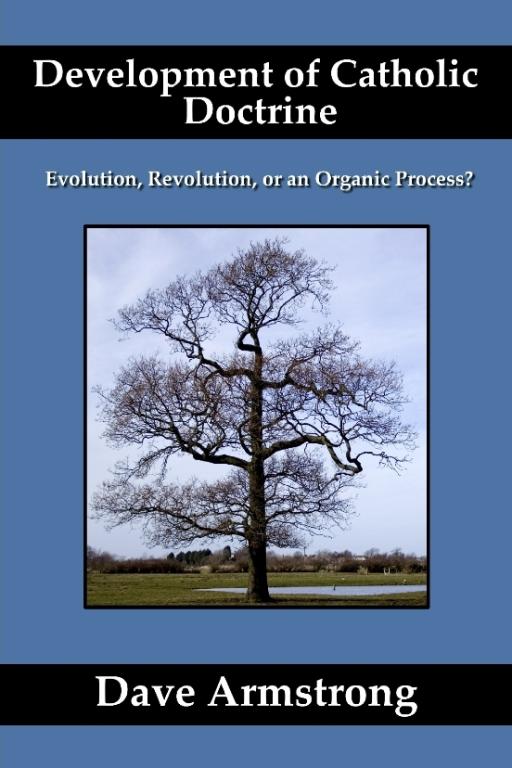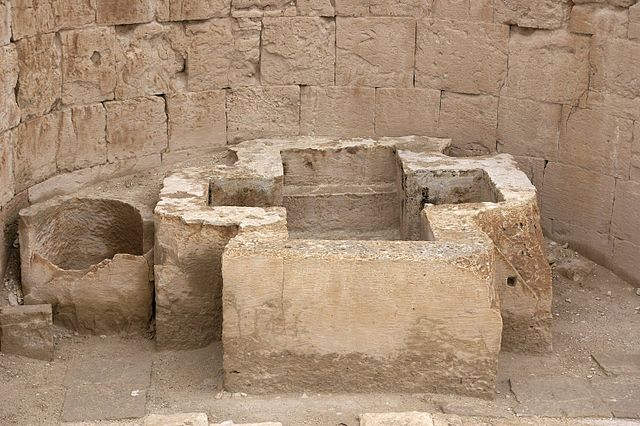Illuminator
Well-Known Member
You reject infant baptism because your reject the doctrine of Original Sin, a doctrine accepted by most Protestants. That places you in a fringe minority. You had better rip Romans 5 out of your Bible.You do not understand nessary inference.
Mark 16:15-16,
he that believes and is baptized will be saved
The gospel of Jesus Christ infers only men are candidates for the gospel.
Babies have no faith, so it is inferred they are not included in the great commission.
If they are then the catholic church better start baptizing atheists.

To Explain Infant Baptism You Must Explain Original Sin
The Church’s teaching on infant baptism flows from the Church’s teachings on original sin and the sacrament of baptism. Click here for an explanation.
No, it began in Jerusalem. After the death of James, centrality was shifted to Rome by Peter and Paul.The catholic church began in Rome.
The historic Church doesn't evolve, it develops.You are in that ever evolving church.

Development Of Doctrine: A Corruption Of Biblical Teaching?
Doctrines agreed upon by all undergo development, too. The Divinity or Godhood of Christ was only finalized in 325; the full doctrine of the Trinity in 381.
True, Christ did not establish Protestantism that had a rather late start.I'm not protestant.
It is not the church Christ established.
Who told you that? Cite sources please.The church Christ built began in 30-33ad
The catholic church came much later in history,
Paul is describing Gnostics who were trying to infiltrate the communities. They "forbid marriage" because they believed the flesh is evil; that had nothing to do with Jesus and Paul's teaching on marriage. Same with "abstaining from foods." The Gnostics were not fasting according to Jesus and Paul, they abstained from foods because they thought certain foods were evil.The apostles warned of its coming,
1Timothy 4:1-3,
- Now the Spirit expressly says that in LATTER TIMES(The catholic church began after the Lord established His church) some will depart from the faith giving heed to deceiving spirits and doctrines of demons, speaking lies in hypocrisy, having their own conscience seared with a hot iron. forbidding to marry and commanding to abstain from foods which God created to be received with thanksgiving by those who believe and know the truth.
For every creature of God is good and nothing is to be refused if it is received with thanksgiving.
For it is sanctified by the word of God and prayer.
You are dead wrong about Ignatius.Deceiving spirits like Ignatius of Antioch,
In recent years it has become more apparent that the statements attributed to Ignatius cannot by taken as the true picture of conditions in the church, but rather represent what he wanted them to be.
It is traditionally believed that Ignatius was ordained by the apostle Peter(appointed elder not an apostle) and for a time served as a chairman of the elders in the church at Antioch. He was arrested during a persecution under Trajan and was escorted to Rome in the care of ten soldiers to be thrown to the wild beasts in the amphitheater......
The Anglican J.B. Lightfoot, no great fan of Catholic (whom he terms “Romanists”) nevertheless concedes that “throughout the thirteen letters the same doctrines are maintained, the same heresies assailed, and the same theological terms employed. In this respect no difference can be traced between the two sets of epistles.” So while there may have been theological reasons (responding to the Apollinarian or Arian heresies) for the forgery of the additional 6 letters, nothing theological (between Catholics and Protestants) turns on these spurious letters. Anything that Protestants would object to in the six false letters is also found in the seven genuine letters.It is thought that his permission to talk with Polycarp and dictate to secretaries do not harmonize with true conditions during the period of persecution. Furthermore, in a letter to the church at Rome he pleads passionately with the brethren there to make no effort to prevent his martyrdom. which seems absurd since it is not likely that the church at Rome had enough influence to have prevented his martyrdom even if they had tried. His desire for martyrdom and his attitude toward the elders of the church has led many to believe that he had a NEUROTIC WILL TO POWER and that this explains his statements that elders should be IN SUBJECTION TO THEIR BISHOPS. A consideration of external conditions surrounding the writing of these letters and statements made in the letters themselves has CAUSED ABLE SCHOLARS OF THE PAST TO DOUBT THEIR GENUINENESS.
The other writers of this period all agree that the churches were GOVERNED BY A PLURALITY OF ELDERS AND THERE WAS NO CONGREGATION WHICH HAD A MONARCHIAL BISHOP AS IGNATIUS ADVOCATES.
If that's true, then all the reformers are uninspired men, and nobody is right, except you.You Catholics always use uninspired men as your evidence for the unbiblical practices and doctrines of your church!
Give scriptures that denies what Ignatius of Antioch advocated, since you claim to have all authority to yourself.Give Scripture that teaches what Ignatius of Antioch advocated?
You cannot this is why you always use uninspired men as your "proof" for what you preach.
Many Protestants make historical claims about how Christ founded the pure, Apostolic Church but that this Church slowly fell away from the truth: either after Constantine legalized Christianity in the fourth century, or during the so-called “Dark Ages,” etc., then corruption slowly crept in. The Apostolic Church, it is claimed, had a body of “presbyter-bishops,” governing the church by committee. These committees were slowly replaced by individual bishops (even though we have no record of a single church recording such a takeover!); meanwhile, superstitions like the Real Presence of Christ in the Eucharist crept in.
Ignatius shows that all of these historical claims are pure fiction. Ignatius isn’t inventing belief in the Real Presence or in the distinction between the bishop and presbyters, or about the necessity to be in union with the visible Church (in the person of the bishop) for salvation. He’s speaking to people who already believe this, and speaking to them within a few years of the death of the Apostle John.
For Protestants to be right on these questions, we would have to assume that
(a) the Church fell into heresy almost immediately and universally after the death of St. John, and
(b) that modern Protestants and @Titus understands Apostolic theology better than the men who sat at the feet of the Apostles.
But those assumptions beggar belief. So we now know what Calvin and @Titus did not:
that his beliefs about the early Church are demonstrably false,
and point to the fact that his theology is demonstrably false.
How Do We Know Ignatius’ Letters are Genuine? – Shameless Popery
shamelesspopery.com
Protestant Answer to Ignatius on the Eucharist – Shameless Popery
shamelesspopery.com
Last edited:



 es household, that there are contentions among you.
es household, that there are contentions among you.